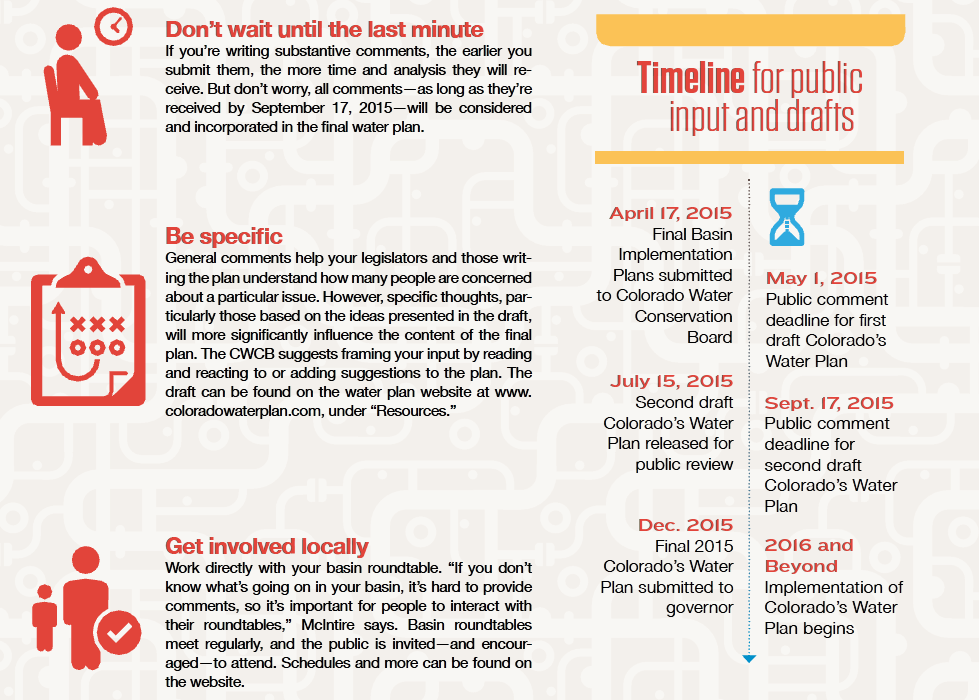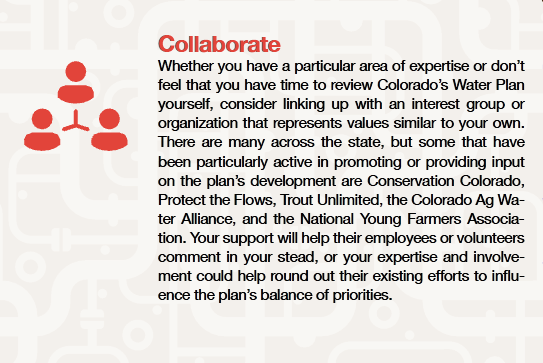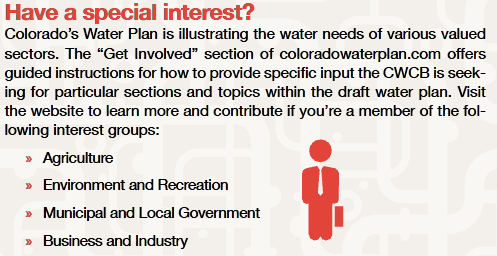If you live in and love Colorado, then Colorado’s Water Plan applies to you.
A first draft was released in December, but that doesn’t mean it’s too late to offer your input, engage or re-engage, and get in the game. In fact, it’s more important than ever that Coloradans review the draft in less than a year, the state’s first water plan will be finalized.
“We want people to be reviewing the draft and submitting comments on what we missed or what we didn’t get right or other opportunities, partnerships, things like that,” says Kate McIntire, education and public engagement coordinator with the Colorado Water Conservation Board (CWCB).
Now is your chance to offer feedback, and you have an advantage—you aren’t starting from scratch, you can react to a draft. So how will you share your ideas, values, knowledge and thoughts? Here are a few recommendations and tools to help you get started.
Tips for making your voice heard


 What happened to the input received during summer 2014’s public hearings with the Water Resources Review Committee?
What happened to the input received during summer 2014’s public hearings with the Water Resources Review Committee?
The public was heard, says Sen. Roberts, and citizens educated their legislators. The Water Resources Review Committee submitted a letter detailing the themes of comments received by the committee for the CWCB’s use in drafting Colorado’s Water Plan, and, according to McIntire, many of those comments have already meaningfully shaped the draft plan. Perhaps these public meetings will also have a longer-lasting effect in building bridges between legislators and their constituents. “[Colorado’s Water Plan] is an aspirational document. It itself is not a law, but I would guess that there could be policy directives that may or may not come out of this,” Roberts says. “There are going to be some tough choices ahead in water in Colorado so we legislators are going to be asked to identify those choices and make some decisions.” And, adds Roberts, “I think our job is better done when we have more robust input from the people who live here.”
“There are going to be some tough choices ahead in water in Colorado so we legislators are going to be asked to identify those choices and make some decisions.” – Sen. Ellen Roberts



 Print
Print